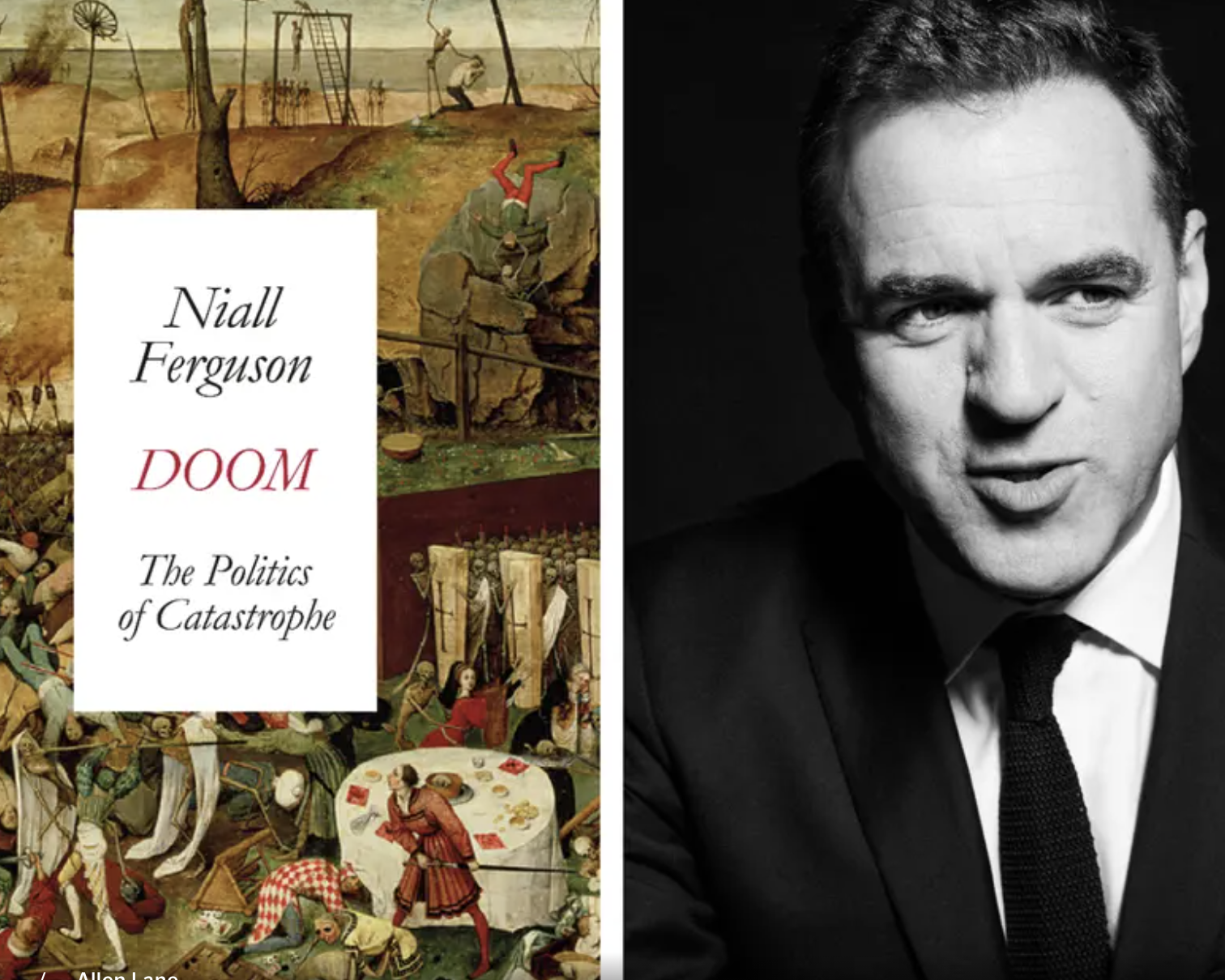
Doom: The Politics of Catastrophe by Niall Ferguson review
(Evening Standard) – From plagues and volcanic eruptions to the current Covid pandemic, mankind has always been faced with catastrophes.
Thought Leader: Niall Ferguson

The writer is the author of ‘Chip War’ Where is Russia in the AI race? The US and China aspire to artificial intelligence supremacy. The United Arab Emirates and Saudi Arabia are spending billions of dollars to position themselves as AI hubs. Governments from South Korea to Kazakhstan have issued strategies for sovereign AI programmes.
Russia boasts an enviable history of engineering talent. It has a native ecosystem of internet-era tech companies, from search engine Yandex to social media site VKontakte. The Telegram messenger service was created by Russian businessman Pavel Durov. Russian criminal entrepreneurs have been innovators in the sphere of ransomware and crypto heists. In 2017, Russian President Vladimir Putin declared that whoever leads in AI will “rule the world”. Yet three years into a global AI boom, Russia is conspicuously absent.
It’s not because AI doesn’t matter to Russia. Its drone war with Ukraine relies on increasingly autonomous systems. AI-enabled drone “swarms” — aspirational at the start of the full-scale invasion — are now on the brink of being realised. Russia has smuggled thousands of chips, including high-end GPU processors, for AI-enabled drones. And yet, Russia remains a bit player in AI.
Just across the border in Finland, an alternative history of Russian tech is operating in a large data centre campus that aims to house 60,000 GPUs, including some of Nvidia’s most advanced chips. The data centre was originally owned by Yandex. It’s now run by Nebius, a company that just signed a $17.4bn deal to operate data centres for Microsoft in the US.
Nebius has since catapulted into the big leagues of data centre start-ups. Most of its neocloud peers like CoreWeave have a background in crypto mining, so they had the infrastructure to quickly pivot to AI. Nebius’s background is different: it is a refugee of the Russia-Ukraine war.
Even before February 2022, the Kremlin had been squeezing tech firms to stamp out opposition. Yandex was forced to filter search results about politically sensitive topics. Yet it was also the country’s greatest technology success story, a case study for how entrepreneurs could make money outside of oil and gas. The Kremlin itself knew that hitting Yandex too hard would undermine efforts to advance technology.
This balancing act was smashed by Putin’s invasion of Ukraine. Like all tech companies in Russia, Yandex intensified censorship. Some of its executives, including co-founder Arkady Volozh, were sanctioned by the west. Other employees condemned the company’s complicity in Kremlin propaganda and fled abroad, partly in protest and partly to avoid the draft.
Yandex responded by chopping itself in two. A Dutch-listed firm, Yandex was ostensibly European. In early 2024 it announced a sale of its Russian assets — which constituted a majority of its business — to Kremlin-linked investors at a steep discount. The remaining non-Russian assets were rebranded as Nebius. Volozh, who in 2023 had publicly condemned the war, succeeded the following year in convincing the EU to lift sanctions on him. Now, having signed the deal with Microsoft, the company’s emigration from Russia is complete.
Back in Russia, the search engine remains at the centre of the country’s tech ecosystem. Yet rather than cutting deals with the world’s biggest tech firms, Yandex is navigating a militarised economy bereft of its smartest tech entrepreneurs. Now that foreign firms are gone, it’s easier to monopolise the Russian market. But hopes that a Russian tech firm would play a significant global role have been extinguished.
Russia has a long history of exporting tech talent, from aviation pioneer Igor Sikorsky to Google co-founder Sergey Brin. With AI promising a major technological shift, Putin has chosen to continue this tradition at the worst possible time.
Professor Chris Miller is a geopolitical expert who talks about the origin, impact, and future of AI. He is the author of Chip War: The Fight for the World’s Most Critical Technology, a book that explains how computer chips have made the modern world—and how the U.S. and China are struggling for control over this fundamental technology. Chip War won Financial Times’ Best Business Book of the Year award. Breaking down the motives behind international politics and economics in a thoughtful and concise manner, Miller provides audiences with fresh, alternative perspectives and leaves them wanting to know more. Contact WWSG to host him at your next event.
Doom: The Politics of Catastrophe by Niall Ferguson review
(Evening Standard) – From plagues and volcanic eruptions to the current Covid pandemic, mankind has always been faced with catastrophes.
Thought Leader: Niall Ferguson
Scott Gottlieb: How well can AI chatbots mimic doctors in a treatment setting?
This is an Op-ed by WWSG exclusive thought leader, Dr. Scott Gottlieb. Many consumers and medical providers are turning to chatbots, powered by large language…
Thought Leader: Scott Gottlieb
Sara Fischer: The AI-generated disinformation dystopia that wasn’t
This piece is by WWSG exclusive thought leader, Sara Fischer. Amid the craziest news cycle in recent memory, AI-generated deepfakes have yet to become the huge truth…
Thought Leader: Sara Fischer

